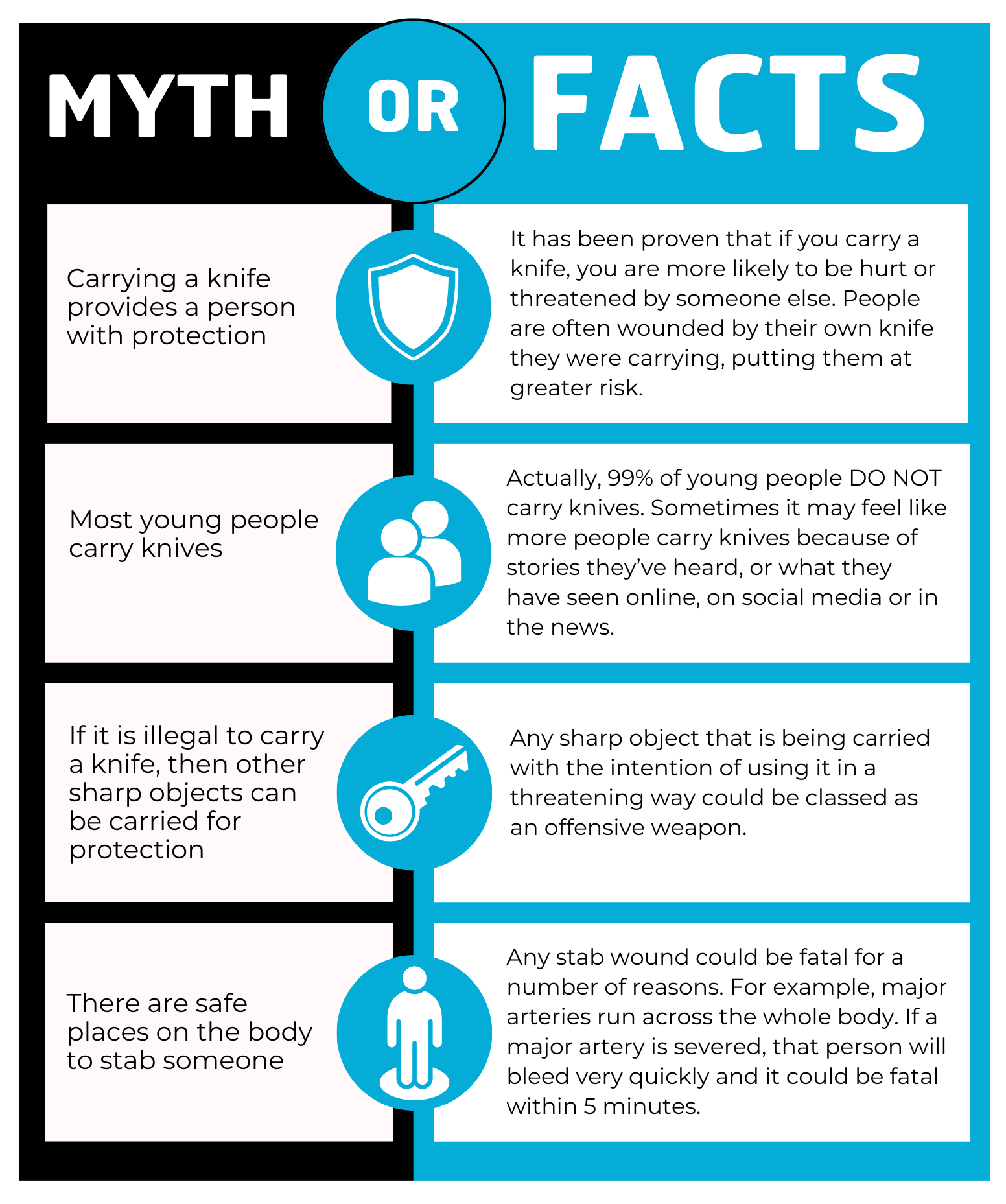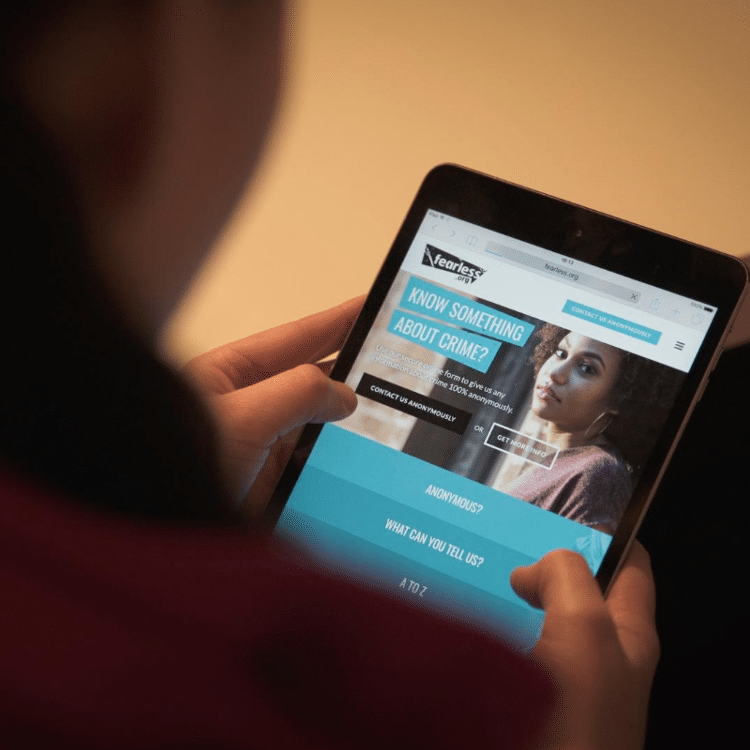Fearless in Gloucester
Your voice. Your choice.
Knives & blades
Your voice. Your choice.
Are you an adult who looks after or works with young people? Click here to get information and resources that have been created for you.
- Are you worried about someone you know who’s got a knife?
- Do you feel that you might be safer if you have a blade with you?
- Perhaps you’re being threatened or things feel like they’re going to kick off.
- Or maybe someone is forcing you to carry a blade if you want to stay mates.
- Do you feel like you don’t know what to do?
Your Voice. Your choice.
Every day we make choices – what to have for breakfast, what music to listen to, who to hang out with, whether to do our homework now or later.
Some choices don’t make much difference to our day to day life. Others have a big impact on how the day turns out. Some choices don’t really affect anyone else.
Some choices are easy. Some choices are hard.
When you’re in a difficult situation, it can feel like you don’t have a choice about what happens next. When you’re in trouble, it can feel like there’s no way out.
But, one thing you can always choose to do is to talk to someone. We know speaking up isn't easy – but it’s a really important choice which can make a difference.
So, if you know something about;
- Someone who’s forcing someone else to carry a knife
- A gang who are threatening you or someone else
- A classmate who’s thinking about getting revenge on someone
- A friend who carries a blade because they think it will keep them safe
You can choose to take action by speaking up. Your choice could stop someone being harmed.
There are different ways to speak up:
- Tell the police - in an emergency or if someone is in immediate danger, always call 999
- Tell a trusted adult such as a parent, carer or teacher
If either of those isn’t possible or feels too difficult, you can also tell us, 100% anonymously, using our simple online form.
Anonymous means that your identity is completely unknown and that no one will ever know that it was you that chose to speak up.
- You won’t be asked for your name or address
- Your device or location cannot be traced
- You won’t be asked to speak to the police or go to court
It’s your voice – use it to make a good choice.
Facts about knife crime
Knife crime is any crime involving a knife or sharp object. This includes:
- carrying a knife
- owning a banned knife
- trying to buy a knife if you are under 18
- threatening, injuring or fatally wounding someone with a knife
Self-defence or self-protection are not valid reasons for carrying a knife or offensive weapon, and this choice could have serious consequences for that person, including serious or fatal injury to themselves or others, and a criminal record.
An offensive weapon is defined as any item that has been made or adapted for the intention to cause hurt or harm to another person, under the Offences Weapon Act 2019.
Here are the knife crime laws in England:
It’s against the law to carry a knife in a public place, unless the blade is less than 3 inches long and it is a manual folding blade. Doing so can carry a prison sentence of up to 4 years even if it is not used. It is also illegal to carry a knife on behalf of someone else.
You must be 18 or over to purchase a knife, this includes cutlery and kitchen knives. Someone who’s over 16 years old can purchase a knife if the blade is less than 3 inches in length and is a manual folding blade.
It is illegal to bring into the country, sell, posses, hire, or give someone a banned knife.
Banned knives include butterfly knives, zombie knives, disguised knives and flick knives.

Exploitation – persuading someone else to commit a crime
Occasionally, someone might persuade or force someone else to carry out a crime on their behalf. This might be selling drugs, hiding a weapon or taking revenge on someone with a knife. This is called Criminal Exploitation.
If you have a friend who’s started behaving differently, especially if they have started hanging around with new friends, it could be a sign that they’re being exploited by criminals. Here are some of the signs to spot:
- Returning home late, staying out all night or going missing for days or weeks at a time.
- Travelling to areas far away from home.
- Increasing drug use, or having a large amount of drugs on them when they do not use drugs themselves.
- Suddenly being secretive about who they are talking to, where they are going or what’s in their bag.
- Gong missing from school, work, college or training.
- Having large amounts of money on them, or having lots of new stuff such as clothes, jewellery or phones they usually wouldn’t be able to afford.
- A change in behaviour – more disruptive, aggressive, anxious.
- Using new language that you wouldn’t expect them to know.
- Having injuries that cannot be explained.
- In possession of hotel keys or keys to unknown places.
If you know or suspect someone is carrying a knife, you can tell us 100% anonymously by filling out our simple online form. No one will know the information came from you and you can help to make life safer for everyone.
The Your Voice, Your Choice campaign is being delivered in partnership with SkillZONE, part of Gloucestershire Fire and Rescue Service. Learn more about SkillZONE at skillzone.glosfire.gov.uk


Victim of knife crime?
Because Fearless is 100% anonymous, we cannot take, respond to or pass on information from victims of crime.
If you have been a victim of crime, it’s really important that you talk to a parent or carer, an adult you trust, or report it to the police.
You can also get more information, support and advice from the organisations listed on our youth support services page.

Anonymity
Fearless is a service that allows you to pass on information about crime 100% anonymously. Anonymous means your identity is completely unknown.

Give information anonymously
Report a crime 100% anonymously by completing our online form or calling 0800 555 111

Youth support services
Access a selection of youth organisations who can offer further information, advice and support for whatever you're dealing with.